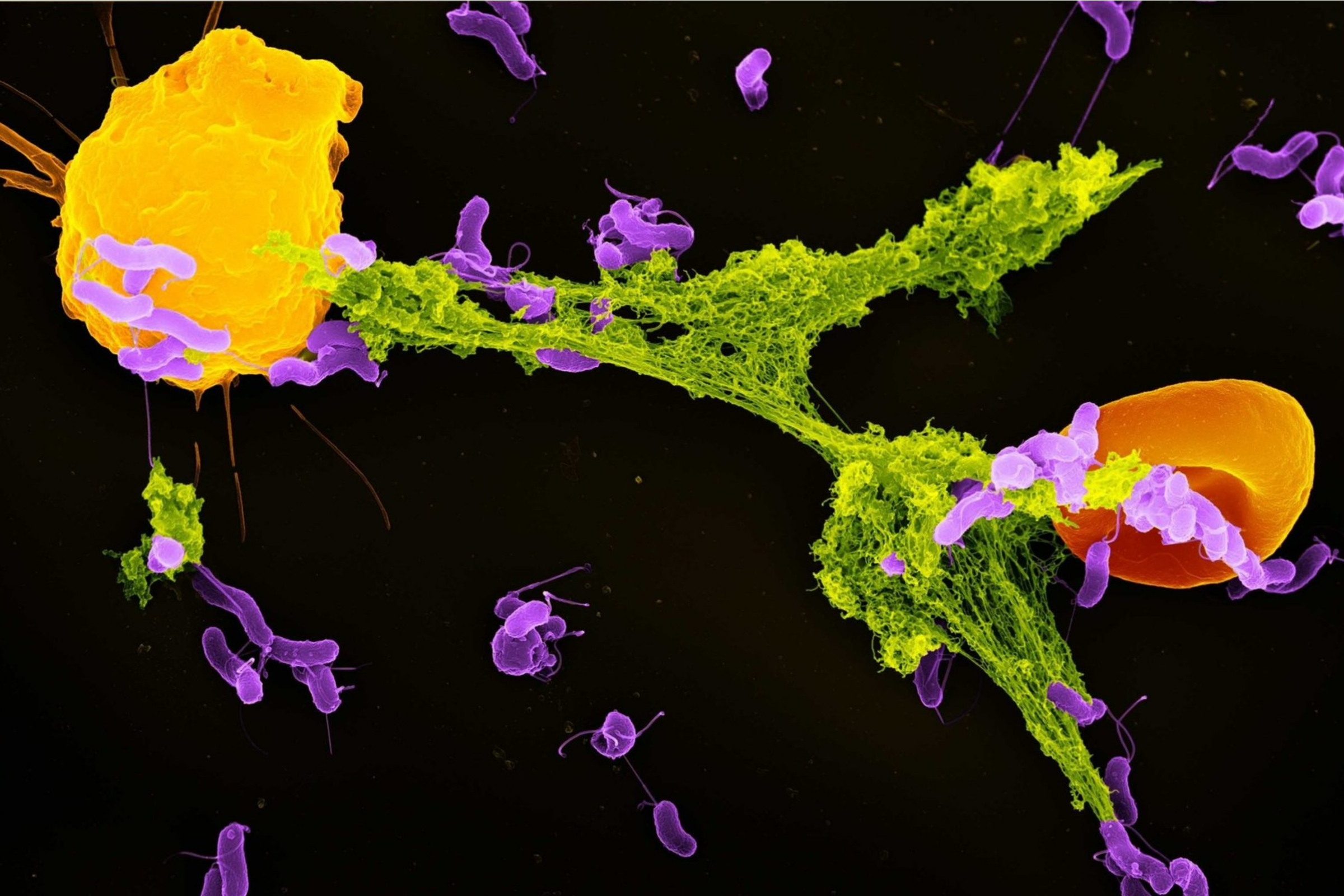A newly identified DNA-chopping enzyme has shown potential to improve treatment options for autoimmune diseases, according to early data from the biotechnology firm **Neutrolis**. This enzyme, which breaks down neutrophil extracellular traps (NETs), could pave the way for innovative therapies aimed at reducing inflammation and autoimmunity.
Neutrophils, a crucial component of the immune system, utilize a unique mechanism to combat infections. When faced with bacterial invaders, these cells expel their DNA, creating a sticky, spiderweb-like structure that ensnares pathogens. While this defensive tactic is effective against infections, it can contribute to inflammation and tissue damage in autoimmune conditions, where the immune system mistakenly attacks healthy cells.
Research from Neutrolis indicates that the enzyme may effectively dismantle these NETs, potentially alleviating the detrimental effects associated with their accumulation. The implications of this discovery extend beyond merely improving immune response; they suggest new therapeutic applications for managing autoimmune diseases, which affect millions worldwide.
Dr. Emily Carter, the lead researcher at Neutrolis, emphasized the significance of these findings. “Our data suggests that targeting the breakdown of NETs could represent a novel strategy for treating autoimmune diseases. By mitigating the inflammatory response, we can potentially improve patient outcomes,” she stated.
The enzyme’s action is particularly noteworthy given the increasing incidence of autoimmune conditions, such as rheumatoid arthritis and lupus, which are characterized by chronic inflammation and tissue damage. Current treatments often focus on suppressing the immune system, which can leave patients vulnerable to infections and other complications. The development of a targeted approach that addresses the underlying cause of inflammation could revolutionize treatment strategies.
Ongoing studies will further assess the enzyme’s effectiveness and safety in human subjects. If successful, Neutrolis aims to bring this innovative therapy to market within the next few years, potentially transforming the landscape of autoimmune disease management.
As research progresses, the scientific community is optimistic about the prospects of this enzyme. The ability to harness the immune system’s mechanisms while minimizing harmful effects could lead to a new era in treating chronic inflammatory diseases.
The results from Neutrolis exemplify the potential of biotechnology to address complex health challenges. As scientists continue to explore the intricacies of the immune system, breakthroughs like this could be pivotal in shaping future therapeutic interventions.







